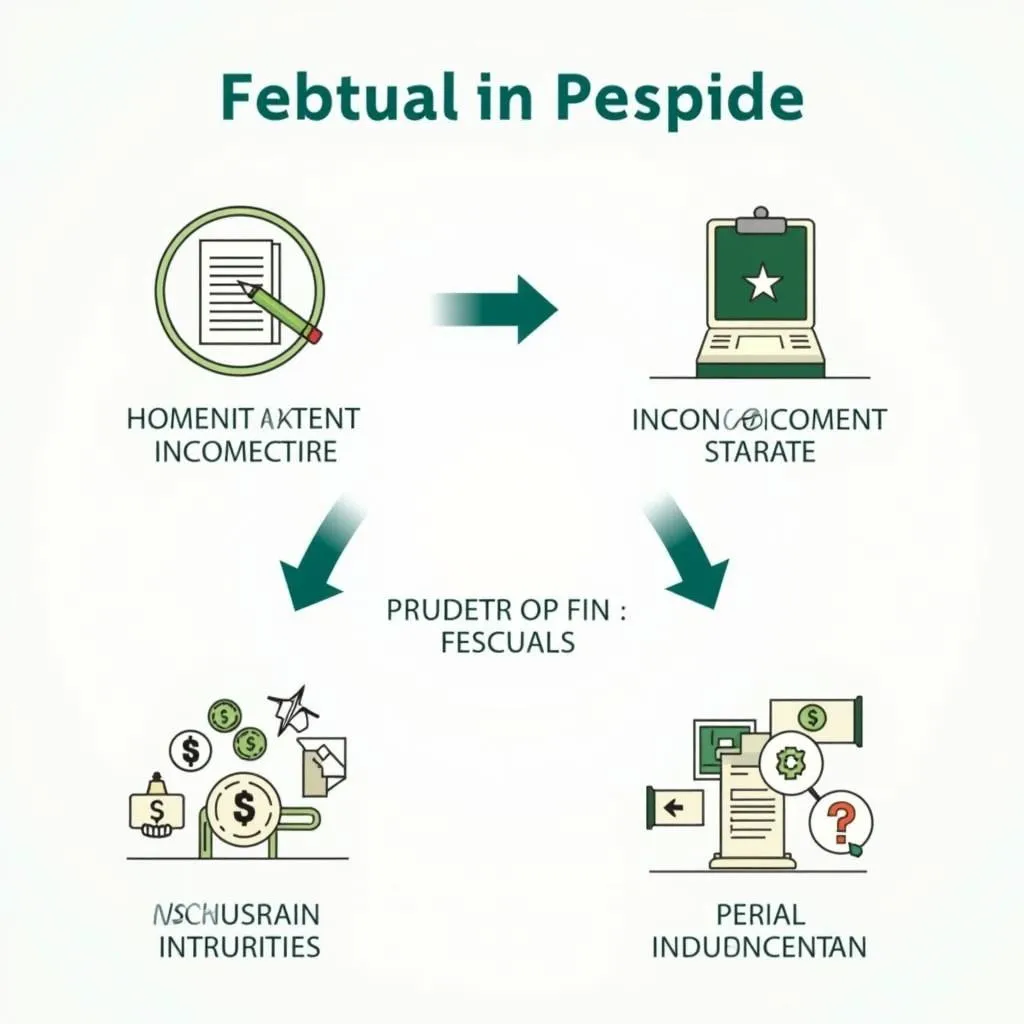Pakistan’s tax system is designed to ensure fairness and transparency, but navigating the complexities of income tax, especially when it comes to foreign income, can be challenging. This comprehensive guide will delve into the ins and outs of Income Tax On Foreign Income In Pakistan, providing you with all the essential information to understand your tax obligations and make informed decisions.
Understanding Income Tax on Foreign Income in Pakistan
The Federal Board of Revenue (FBR) in Pakistan imposes income tax on both domestic and foreign income earned by Pakistani residents. Foreign income is any income earned outside Pakistan, regardless of its source. This can include:
- Salaries and wages: Income earned from working abroad
- Business income: Profits from businesses operating outside Pakistan
- Rental income: Income from renting properties in other countries
- Investment income: Dividends, interest, and capital gains from foreign investments
- Other income: Income from pensions, royalties, and other sources
Key Considerations for Income Tax on Foreign Income
Tax Residency: Determining tax residency is crucial for determining tax liability. A Pakistani resident is obligated to pay income tax on all income, both domestic and foreign. However, non-residents are only taxed on their income derived from Pakistan.
Tax Treaties: Pakistan has signed double taxation avoidance agreements (DTAs) with several countries. These treaties help to avoid double taxation on the same income in both Pakistan and the other signatory country.
Reporting Requirements: Individuals with foreign income are required to report it to the FBR. This is done through the annual income tax return. Failure to disclose foreign income can lead to penalties and legal consequences.
Calculating Income Tax on Foreign Income
The income tax rate on foreign income depends on the type of income, the country of origin, and the applicable tax treaty. In general, foreign income is subject to the same tax rates as domestic income.
Exemptions and Deductions: Certain exemptions and deductions may be available for foreign income, such as:
- Foreign tax credits: You may be able to claim credit for taxes already paid on foreign income in the country of origin.
- Tax-free allowances: Some allowances, such as allowances for living expenses abroad, may be exempt from income tax.
Tax Filing for Foreign Income
Taxpayers are required to file their annual income tax return with the FBR, even if they have no income from Pakistan. The return must include all income, including foreign income.
Online Filing: The FBR has made it easier to file income tax returns online through its website.
Tax Payment: Taxes on foreign income are typically paid through the same methods used for domestic income, such as bank transfers or online payment portals.
Tips for Minimizing Income Tax on Foreign Income
- Plan your investments: Choose investments that are tax-efficient in the countries where you are earning income.
- Utilize tax treaties: Take advantage of double taxation avoidance agreements to minimize your tax burden.
- Seek professional advice: Consult with a qualified tax advisor to understand the complexities of income tax on foreign income and to ensure compliance with all applicable laws.
Common Questions About Income Tax on Foreign Income
Q1. What if I don’t know how to report my foreign income?
A1. The FBR provides detailed guidelines and resources on its website. You can also consult with a tax advisor for assistance.
Q2. Is there a deadline for filing income tax returns for foreign income?
A2. Yes, the FBR sets a deadline for filing income tax returns each year. You can find the deadline on the FBR website.
Q3. What are the penalties for not reporting foreign income?
A3. Failure to report foreign income can lead to penalties, including fines and imprisonment.
Q4. Can I deduct expenses related to my foreign income?
A4. Yes, you may be able to deduct certain expenses, such as travel expenses and business expenses.
Q5. What if I have foreign income from a country that doesn’t have a tax treaty with Pakistan?
A5. You will still be required to report the income and pay tax in Pakistan. However, you may be able to claim a foreign tax credit for taxes already paid in the other country.
Q6. Do I need to pay income tax on foreign income if I am a non-resident of Pakistan?
A6. No, you are not required to pay income tax on foreign income if you are a non-resident of Pakistan. However, if you earn income from Pakistan, you will be taxed on that income.
Q7. How can I get help with my income tax questions?
A7. You can contact the FBR customer service hotline or visit their website for assistance.
 Income Tax on Foreign Income in Pakistan
Income Tax on Foreign Income in Pakistan
Conclusion
Income tax on foreign income in Pakistan can be a complex issue, but by understanding the key principles and guidelines, you can ensure compliance with tax regulations and minimize your tax liability. Remember to consult with a qualified tax advisor to receive personalized advice and to navigate the complexities of this area of taxation.
Please note: This information is for general guidance only and should not be considered as professional tax advice. Always consult with a qualified tax advisor to ensure compliance with all applicable tax laws.
If you have any further questions or need assistance with your income tax matters, please contact us at:
- Phone: +923337849799
- Email: [email protected]
- Address: Dera Ghazi Khan Rd, Rakhni, Barkhan, Balochistan, Pakistan
We have a team of experienced professionals who are available 24/7 to answer your questions and provide you with the support you need.